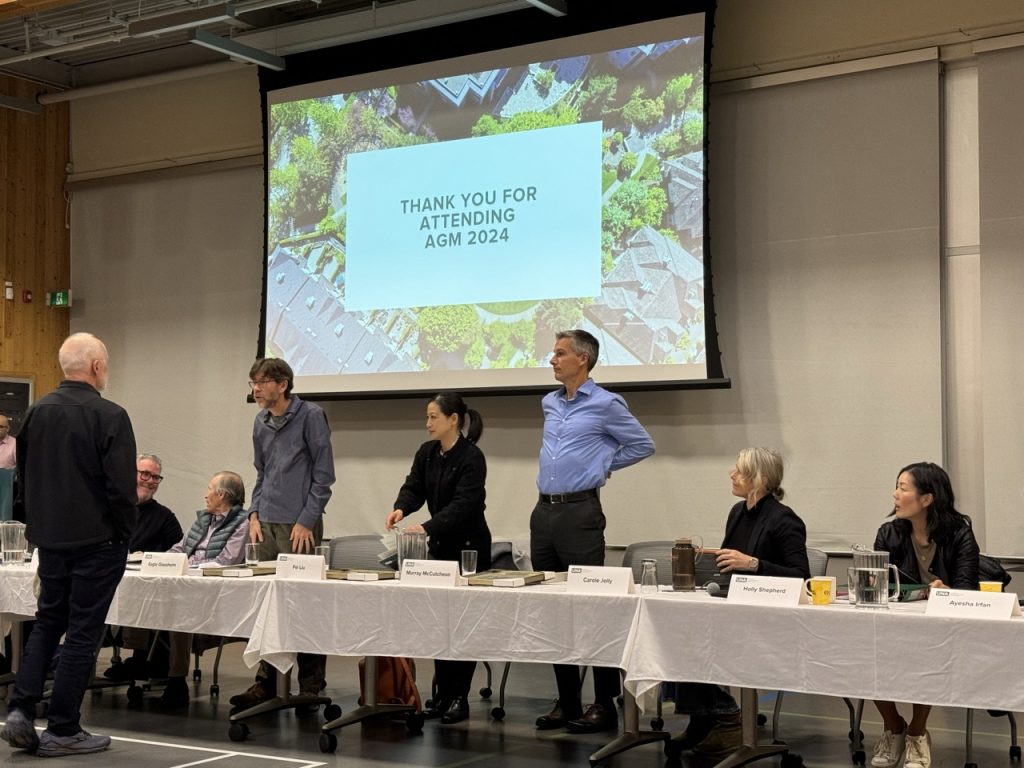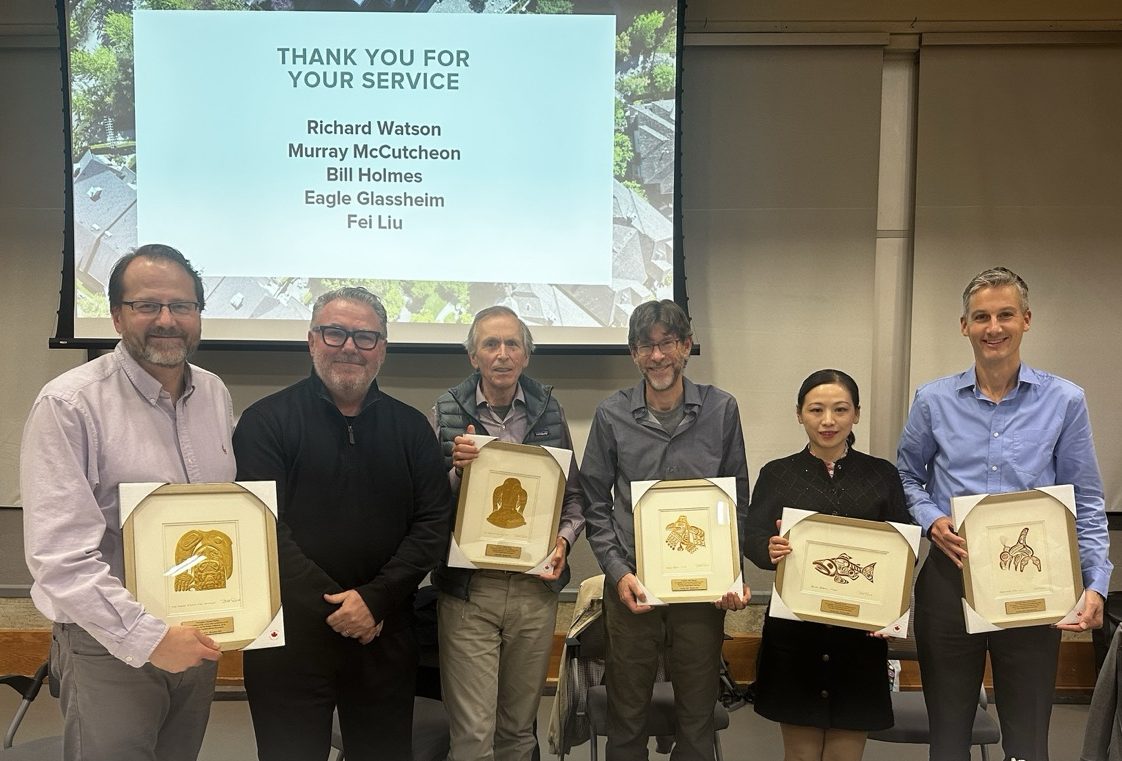A resolution that could lead to a new process for filling board of director vacancies in between elections was adopted at yesterday’s UNA Annual General Meeting.
The meeting was attended by roughly 40 people.
The UNA’s annual general meetings are an opportunity for community members to learn about the activities of the UNA, Its financial health, and other aspects of the association and its administration of municipal-like services for residents of UBC’s residential neighbourhoods.
Yesterday’s meeting included a report by outgoing board chair Richard Watson, a finance committee report with a presentation of the UNA’s 2023-2024 financial statements, and a presentation by UNA chief administrative officer Paul Thorkelsson.
A UBC Official delivered a presentation on the Neighbours Fund – an account by a levy paid by residential property owners in the university neighbourhoods and the General Municipal Services Levy, which is paid by UBC Properties Trust on its buildings in the university neighbourhoods. The Neighbours Fund is designed to cover the municipal-like services that are outlined in the UNA’s budget.
While discussing the 2023-2024 financial statements, director Bill Holmes said the UNA was in “great financial shape”.
Holmes reported the UNA posted excess revenue of $951,854 for the 2023-2024 fiscal year. Because the association operates as a non-profit, he said budgets are designed to be balanced, meaning revenues equal expenses.
He attributed the nearly $1 million in excess revenue to higher than budgeted revenues at the UNA’s community centres, and lower than budgeted operating expenses.
Also during the meeting, a majority of 36 UNA members voted to approve a special resolution that could be the first step to establishing new rules on how board vacancies are filled when they arise in between election cycles. Only one member voted against.
Currently, vacancies are filled by board appointments, but with the new resolution, they can now also be filled through a by-election.
Following the adoption of the resolution, any changes in the process will need to be voted on by directors.

The matter was previously discussed by directors during last April’s board meeting after a UNA staff report was tabled that included a recommendation that the process for filling vacancies should depend on when they occur during the election cycle.
According to the report, vacancies arising in the first year after a general election would be filled by appointment, with the board offering the position to an unsuccessful candidate who received the next highest vote total during the most recent election.
But in order to be appointed, that individual will have had to have received at least 20 per cent of the vote. In cases where that criteria isn’t met, the board would be required to call a byelection instead.
If a vacancy occurred in the second year after an election, the UNA would call a byelection to fill the vacancy.
For vacancies that arise in the third year, the board could make an appointment following an interview-like process, or they could decide to leave it vacant until the next election.
Elections to the seven-member board are held every three years. The next vote is scheduled for next month, with an electronic voting period set to run from November 4 to 26.
At least six new directors will be elected when the UNA holds its election for its board of directors in November.
Current chair Watson and director Murray McCutcheon will both be ineligible to run again due to UNA’s term limits, while director Fei Liu has moved away from the university neighbourhoods, making her ineligible. Bill Holmes stated during the AGM he doesn’t intend to run, and two vacancies currently exist on the board from previous resignations. Eagle Glassheim has said he will seek re-election.
EMMANUEL SAMOGLOU IS MANAGING EDITOR OF THE CAMPUS RESIDENT
